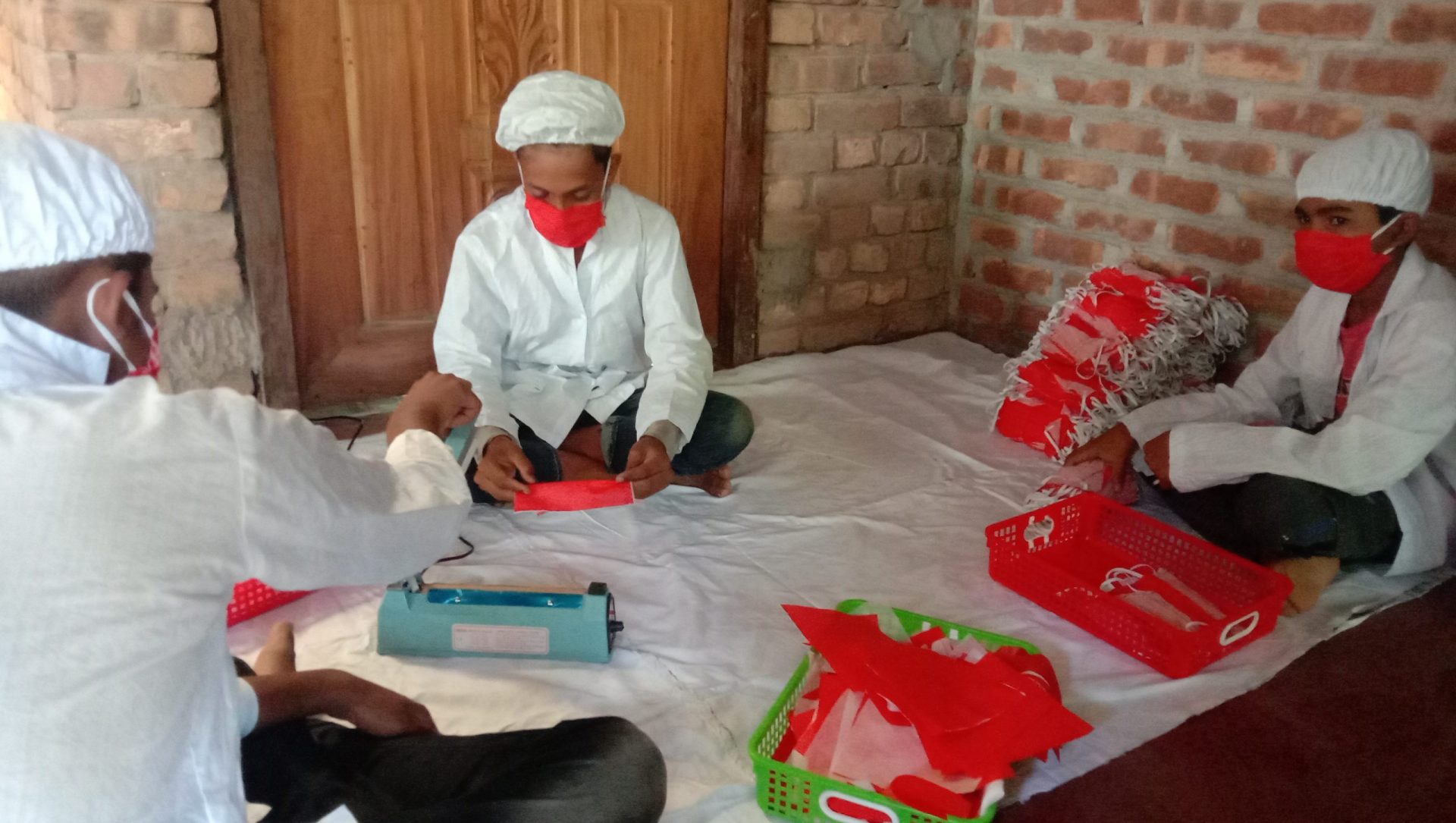Voice from the Front-line: ‘Periods don’t stop during for crisis’
In Satkhira, a local young feminist organisation is raising awareness and building community resilience to tackle the compounding effects of COVID-19 and cyclone Amphan.
Satkhira is a coastal district in southwest Bangladesh. The area is tremendously vulnerable to the impacts of climate change. In 2009, cyclone Aila wreaked havoc in the district, causing numerous casualties and destroying croplands. Saltwater ingress has created long-term consequences for the area. Since then, Satkhira has been frequently affected by medium to high intensity cyclones within close intervals.
Most of the inhabitants of Satkhira are engaged in fish-farming and agriculture, thanks to their close proximity to rivers and to the world’s largest mangrove forest, the Sundarbans. An increasing number of people have also started migrating to nearby cities, either as day-labourers or as brick-makers on a seasonal basis. This is particularly the case in the dry season, when agriculture and fish farming become difficult due to increased levels of salinity. Women are also migrating to big cities to work in garment factories.
A female-led, local organisation in Satkhira, called Bindu, has been working on community outreach programmes for almost a decade now. The organisation advocates for gender equity, women’s empowerment and right to education, and climate justice. Founded in 2011, Bindu’s work is primarily focused around the southwestern coastal region of Bangladesh.
Extending emergency response services to vulnerable communities
Jannatul Mawa, a 28 year-old young woman from Kaliganj upazila in Satkhira, is the Executive Director of Bindu. When COVID-19 hit, the organisation undertook multiple initiatives to tackle the repercussions of the ongoing crisis on the communities.
With an initial focus on reducing gender-based discrimination and child marriage, Jannatul and her organisation eventually started offering different skill-based training to local women. “We recognise that women are disproportionately affected by natural disasters and climate change due to various socio-cultural and economic factors. Therefore, we aim to empower women socially and economically to secure their rights,” Jannatul narrates.
Given the multiple effects of the crisis on the communities of Satkhira, Jannatul sensitised community members about the safety and prevention protocols of COVID-19. She withdrew funds from Bindu’s reserve, to mobilise and form a women-led emergency response team to produce and distribute face masks, hand sanitisers and soaps.
”All staff members of Bindu contributed to an emergency fund by forgoing their salary for one month. Community members also came forward to contribute to the effort. In addition, a local NGO provided their support to our initiative,” shared Jannatul.
Jannatul and her team conducted courtyard meetings in the communities to demonstrate proper ways of wearing masks and washing hands, as per the guidelines of the World Health Organization (WHO) and the Ministry of Health in Bangladesh. In addition, they distributed leaflets, posters and implemented awareness campaigns in local language about the nature of the virus. “All our previous experiences in community outreach worked as a resource during COVID-19,” she adds.
To cater to a wide range of audience, Jannatul also collaborated with a local radio station known as Nalta, to disseminate information and important guidelines. She has facilitated the formation of a local network called the “Corona Expert Team” consisting of local men, women, youth, social workers and community journalists. The network works to foster relationships between the community and local government. Together with the local government, the network has hosted training workshops for local youth volunteers on emergency response measures during COVID-19.
Tackling Compounding Shocks
While COVID-19 was still prevailing, Bangladesh was hit by cyclone Amphan, the deadliest storm ever recorded in the Bay of Bengal. During the cyclone, heavy rains and high tidal surges destroyed dams and submerged low-lying lands, ponds and croplands with intrusion of saline water in Satkhira.
To ensure the safety of the cyclone-affected communities, Jannatul offered essential materials such as masks, hand sanitisers and disinfectants for free. “People are struggling to manage food for themselves, how will they buy masks and soaps? This is the time when we should support each other” she adds.
“It must also be mentioned that menstruation does not stop during a crisis. We encouraged and promoted the use of sanitary napkins to ensure menstrual hygiene among vulnerable girls. Our volunteers distributed sanitary napkins among young girls and women at a very low price and at times, free of cost” she denotes.
When the situation improved, Jannatul provided seeds and organic fertilisers to women farmers to begin their harvests. She was able to fund this initiative from one of her ongoing projects that promotes women-friendly agricultural practices.
“Community driven interventions can build long-term resilience. More attention and investments should be driven towards interventions and innovative solutions being instigated by local grassroots organisations” Jannatul concludes.
Get in touch with Sohanur Rahman via kishanibd@gmail.com


